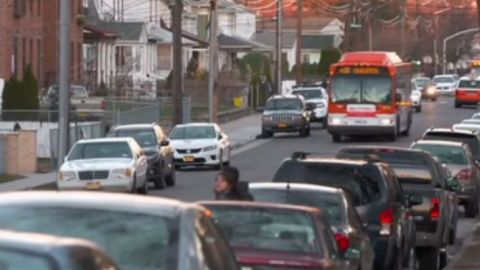Transportation costs keep rising while service continues to decline
This piece was produced in partnership with NJTV News.
By David Cruz
If you’re one of the millions of New Jersey residents who commutes to work or school or wherever, whether you’re on a train or a bus, or, in some cases both, you know that, even as the quality and reliability of service goes down, the cost is always going up.
“Oh, don’t even get me started,” said one commuter as she rushed to catch her PATH train. “I’ve been here 21 years. I use to pay 50-cents for this. It’s not even worth it. It should cost $5 so maybe they’d fix it. This is a disaster. It’s always delayed. There’s always issues. Anyway, I’m late.”
It’s a common refrain. The Port Authority’s PATH service has had a particularly bad year as it tries to implement federally-mandated safety controls and attempts to handle all the volume from unchecked new development along its 14-mile line. Crowded platforms and long delays have become the standard.
It’s been a long time since the 50-cent PATH fare, but since 2002 the price of a one-way PATH fare has gone up from $1.50 to $2.75. If you’ve been here a long time, that seems like a lot, but newcomers in Jersey City, most commuting to and from Manhattan, say it ain’t so bad.
“Honestly, I think that if I were anywhere else and I had to pay for a car and gas it would actually come out to be more expensive,” said Shondra Thomas, a Jersey City resident. “Yeah, it’s not perfect, but it works out OK.”
Also, it could be worse, says Rajko Gommers. He’s visiting from the Netherlands where he’s a university student who takes two trains to get to school and two trains back, every day.
“So, a single-way ticket is around 10 to 12 euros, times 10, so it’s 120 or 100 euros a week,” he notes.
That’s roughly $468 a month. Transit guru Martin Robbins says most people don’t know they’re already paying for mass transit, whether they take it or not. In the case of NJ Transit, public dollars cover about 50 percent of the system’s operating costs, with commuters picking up the rest. The national standard is closer to 75 percent, he says.
Since 2002, fares on NJ Transit have gone up over 60 percent, 25 percent in 2010 alone. So, why, even with a public subsidy, are you seeing those big fare increases every few years?
“They see the 20 percent rate increases when the government doesn’t carefully manage this allocation between passengers and government and they refuse to pay the passengers’ contribution for political reasons and then the cost just keeps rising and then major adjustments are ultimately required to bring things back into that balance,” said Robbins, “And that’s what happened each one of those times.”
Robbins says that until political leaders start being honest with commuters and create a policy that raises fares more regularly and more fairly, relief is miles down the track.
Unlike a lot of commodities, the cost of transportation rarely fluctuates. The only direction it follows is up, even while the quantity and the quality of supply goes down.

